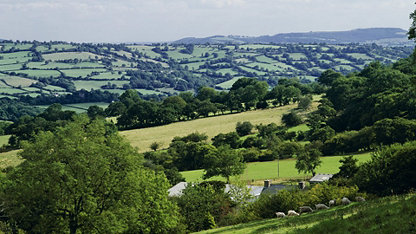- New RICS Superstar City Index assess where investment and infrastructure would have largest impact in Africa as it seeks to prosper post pandemic, in contrast to more developed regions
- Many cities in Africa found to be punching above their weight
- Nigeria has two-star cities in the top five
New Royal Institution of Chartered Surveyors (RICS) research, released today highlights which cities in Africa are thri ving, paving the way for both the private and public sector to act to unlock the vast potential of what will become the second largest urban population of any continent.
RICS Superstar Cities of Africa, includes a new economic measure ‘The RICS Superstar City Statistic (SCS)’ that evaluates cities on output relative to population size. The findings show that some cities in Africa produce significantly more economic output than would be expected relative to their population.
The top cities in terms of economic performance see Nigeria with two outstanding performers in the top five. In order of ranking the top ten are Oran, Algeria; Port Harcourt, Nigeria; Pretoria, South Africa; Aba, Nigeria; Nairobi, Kenya; Mwanza in Tanzania; Hargesia in Somalia; Casablanca in Morocco; Luanda, Angola; and Tripoli in Libya,
Using the full index, policymakers acting under budget constraints will be able to use the SCS, as one of their measures, to determine where place-based policies will give the greatest returns. Private firms can utilise the SCS to help make locational choices, while investors can use it to help make decisions regarding capital allocation. The report highlights that as African cities grow in an unplanned manner, infrastructure is a big issue and this index could encourage policy choices that provide infrastructure upgrades where they are most needed to ensure success and that Africa flourishes out of the pandemic.
Connectivity, including a city’s density, quality of physical infrastructure, and access to social networks also appear to be important factors driving the concentration of economic activity across different metropolitan areas.
Africa’s future is inexorably linked to its cities, both in terms of economic performance and social wellbeing. African cities have an urgent need for physical infrastructure, and to support this they need land reform. African cities rank relatively poorly in terms of having clearly defined rules and regulations surrounding the usage of land. Not only does this increase valuation complexities, but it also reduces incentives to invest and is perhaps one important reason why African cities are so fragmented. Rwanda is a poster child for successful land reform in Africa, and with respect to planning and acquisitions of land for development, Rwanda only ranks behind New Zealand and Singapore globally.
Sean Ellison, Author and Research Manager at Cushman & Wakefield, commented: “Although the disparities between urban and rural economic activity in Africa are well documented, the SCS shows large gaps exist between urban centres as economic output is concentrated in a few cities. Although scale seems to contribute to this, there are several medium sized cities that ‘punch above their weight’. Such cities are well placed to provide higher returns to short term investments, while their successes can be emulated by others in the medium-to-long term.”
Built environment professionals will further delve into how the built environment can shape future cities and build equality through the sector’s role as part of the WBEF Dubai 2022 conference.
-ENDS-
Notes for editors:
The full report can be downloaded here.
About RICS
We are RICS. Everything we do is designed to effect positive change in the built and natural environments. Through our respected global standards, leading professional progression and our trusted data and insight, we promote and enforce the highest professional standards in the development and management of land, real estate, construction and infrastructure.
Our work with others provides a foundation for confident markets, pioneers better places to live and work and is a force for positive social impact.
For more information:
John Bayliss
Alexandra Booth
We are RICS
Everything we do is designed to effect positive change in the built and natural environments.
Through our respected global standards, leading professional progression and our trusted data and insight, we promote and enforce the highest professional standards in the development and management of land, real estate, construction and infrastructure.
Our work with others provides a foundation for confident markets, pioneers better places to live and work and is a force for positive social impact.














